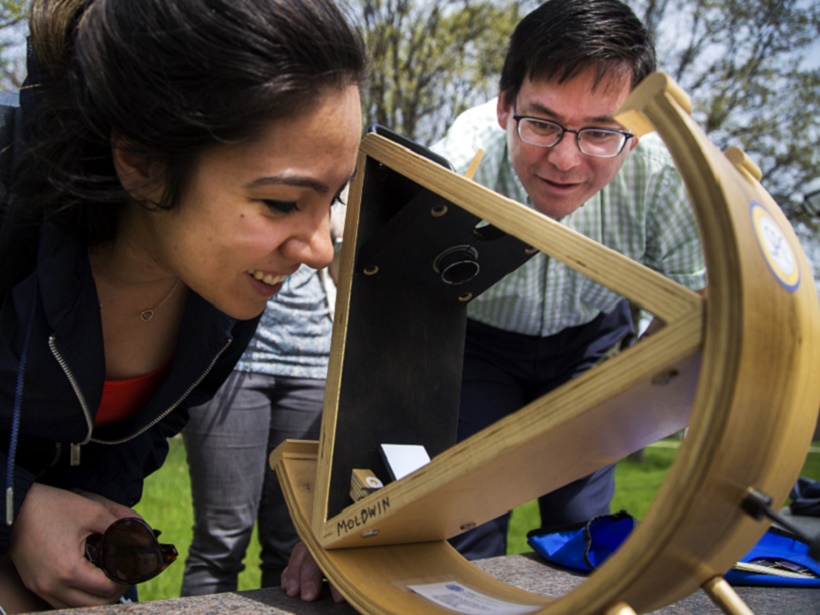When I became Editor in Chief of Reviews of Geophysics in October 2009, I decided to do something “old school” and read every paper that we handled. I was fortunate to have had the opportunity to talk with two earlier incumbents—Alex Dessler (1970-1974) and Andy Nagy (1980-1984)—who were not only the Editor in Chief, but at the time the only editor for the journal. They single-handedly were responsible for all the papers submitted from across the entire spectrum of Earth and space science disciplines that AGU membership spans. Since Reviews generally publishes 24 or so papers per year, I thought that I could be as “hands-on” as these former editors.
Besides learning much more about the breadth and importance of the science that the AGU community studies, I learned that my AGU colleagues are awesome. All of the authors of review papers that were published in the last eight years have made tremendous impact on our disciplines. Their review papers not only synthesized the current understanding but also helped resolve controversies and define future directions of the field. A significant fraction of Reviews of Geophysics papers are in the top 1 per cent of highly cited papers, clearly indicating the quality of the author teams’ contributions and impact [Moldwin et al., 2017].
A requirement to write an excellent review paper is a large and talented pool of referees that are willing to commit significant effort providing extensive, timely and helpful feedback to the author teams and to the Editorial Board. Their comments not only helped authors to make the reviews more concise and well structured, but also helped them provide context to the broader geoscience community.
The role of the editorial board (Fabio Florindo, Gregory Okin, Alan Robock, Eelco Rohling, Bayani Cardenas, Annmarie Carlton, Kate Huihsuan Chen, Michel Crucifix, Andrew Gettelman, Alun Hubbard, Tomoo Katsura, and Thomas Painter) in identifying author teams and referees to work with them was also crucial to the success of the journal. The Editorial Board has shown tremendous dedication to assisting author teams, referees, and each other in making outstanding decisions. During our tenure, we handled only a few papers that were problematic in one way or another and I know that the editors made thoughtful, fair and defensible decisions.
Assisting the Editorial Board were incredible AGU Editorial Assistants and Publications staff (Julie Dickson, Rochelle Odon, Jenny Solecki, Pam Calliham, Rebecca Knowlton, Graciano Petersen, Edith Judd, Zach Stahly, Randy Townsend, Jeanette Panning, Lorraine Hall-Petty, Indrani DasGupta, Victoria Forlini, Sara Young, Paige Wooden, Bill Cook, Jenny Lunn and Brooks Hanson). They provided clear communication channels between the authors, referees, editors and Wiley production staff. As is true in so many areas of science, without highly professional, competent and friendly staff support, nothing would get done.
I am very grateful for all the support and collegiality offered to me as I served in this role. I am confident that the new Editor in Chief, Fabio Florindo, will lead Reviews of Geophysics well into the future.
At the AGU Fall Meeting in New Orleans please join me in thanking the AGU publication staff, editors, authors and referees for all they have done for our community. When you are standing in a beer or coffee line, thank the person next to you, since they probably have been involved with some aspect of the publication process – as an author, as an editor, or a referee. Our future depends on our continued unselfish cooperation in research and our willingness to assist each other in communicating our science.
—Mark Moldwin, Editor in Chief, Reviews of Geophysics, and Department of Climate and Space Sciences and Engineering, University of Michigan; email: [email protected]
Citation:
Moldwin, M. (2017), An “old school” approach and a community effort, Eos, 98, https://doi.org/10.1029/2018EO086711. Published on 15 November 2017.
Text © 2017. The authors. CC BY-NC-ND 3.0
Except where otherwise noted, images are subject to copyright. Any reuse without express permission from the copyright owner is prohibited.

